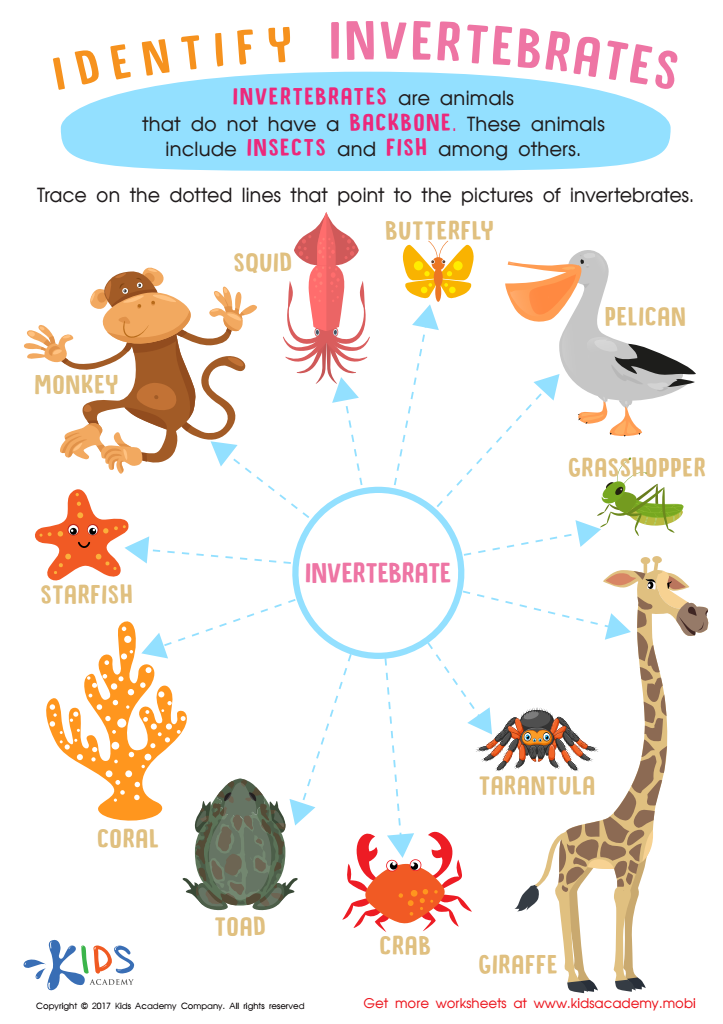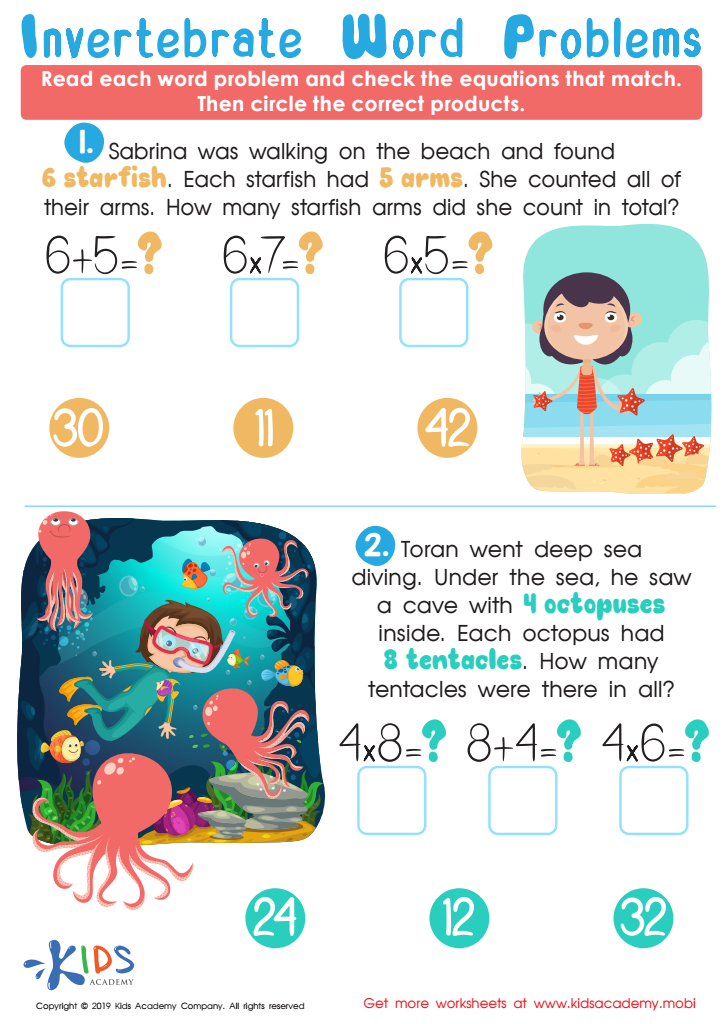Understanding invertebrates Worksheets for Kids
2 filtered results
-
From - To


Invertebrates Worksheet for Grade 3


Invertebrate Problems Worksheet
Question/Answer
How to test a Grade 3 student’s Understanding invertebrates skills?
To test a Grade 3 student's understanding of invertebrates, you can use a combination of techniques such as quizzes with pictures for identifying different invertebrates, matching games pairing invertebrates with their characteristics or habitats, and simple projects like creating a poster or a model habitat that includes various invertebrates.
Why is the Understanding invertebrates skill important for Grade 3 students?
Understanding invertebrates is important for Grade 3 students as it helps them develop foundational knowledge in biology, fosters curiosity about the natural world, and promotes respect for all forms of life. It also enhances observational skills and introduces concepts of biodiversity and ecosystems, laying the groundwork for more advanced scientific learning and environmental awareness.
What are some effective activities to train students’ Understanding invertebrates skill when teaching them about Multiplication?
To train students' understanding of invertebrates while teaching multiplication, engage them in activities like creating and solving multiplication word problems based on the number of legs, eyes, or segments of various invertebrates. Use visual aids, such as pictures or actual models, for counting and grouping exercises.
 Assign to the classroom
Assign to the classroom












